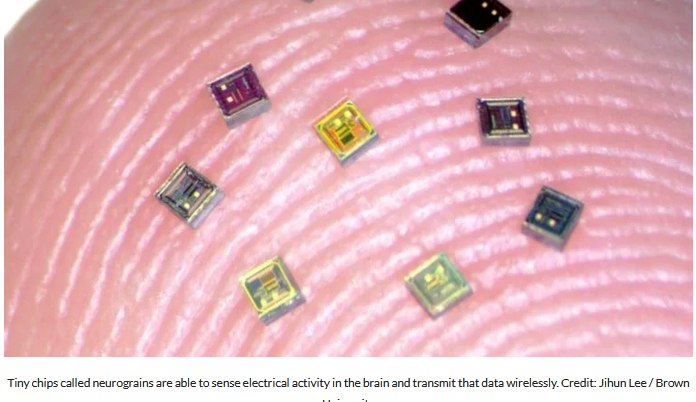|
Brain-computer interfaces (BCIs) are emerging assistive devices that may one day help people with brain or spinal injuries to move or communicate. BCI systems depend on implantable sensors that record electrical signals in the brain and use those signals to drive external devices like computers or robotic prosthetics.Most current BCI systems use one or two sensors to sample up to a few hundred neurons, but neuroscientists are interested in systems that are able to gather data from much larger groups of brain cells.
Now, a team of researchers has taken a key step toward a new concept for a future BCI system — one that employs a coordinated network of independent, wireless microscale neural sensors, each about the size of a grain of salt, to record and stimulate brain activity. The sensors, dubbed “neurograins,” independently record the electrical pulses made by firing neurons and send the signals wirelessly to a central hub, which coordinates and processes the signals.
0 Comments
Leave a Reply. |
Psyche Summit™
|
© COPYRIGHT 2020-2024. Psyche Summit. ALL RIGHTS RESERVED.


 RSS Feed
RSS Feed